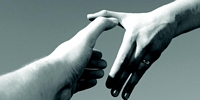Bladder Infection? Fight Back Without a Prescription!
Symptoms of Bladder/Urinary Tract Infection
- Incontinence
- Burning sensation upon urination
- Sensation of urgency to urinate without the ability to void completely
- Reddish or cloudy urine
- Foul smelling urine
- Lower abdominal pain
- Frequent urination
Do not confuse a bladder infection with BV Bacterial Vaginosis
- Gray vaginal discharge
- Itching and burning
- Foul fishy odour from vagina
Do not confuse a bladder infection with Yeast Vaginitis(Yeast Vaginitis and bacterial vaginosis do not occur together because the environments are substantially different)
- white, curdy discharge
- vaginal burning
This problem is caused by an imbalance of naturally occuring bacteria. It is not caused by the E-Coli bacteria found in most bladder infections.
I'm a Baby Boomer so I don't get embarrassed easy anymore. I have my own voice. To some this subject is embarrassing. My daughter would say: "Mom there are so many topics you can choose to write an article about why this subject." To put it simply women need help. What is the safest way to walk across a mine field? To walk in the footsteps of the person who made it across safely. Don't go through years of antibiotics that disturbs the balance in your body. I'm not saying antibiotics are never necessary but they are not necessary for an E-coli bladder infection. There are better choices.
I had bladder infections for four years caused by an infected imbedded stone in the kidneys. The kidneys empty into the bladder, bacteria colonies and all. I was treated with antibiotics and had kidney surgery to remove the stone. Now I get drug resistant urinary tract infections.
What Causes Most Bladder Infections?
1.Stress2.Diarrhea3.Sexual Intercourse4.Sanitation Practices5.Intestinal Health
Stress can cause bladder infections because it affects your immune system and reduces your body's natural ability to fight back making you susceptible to illness. E-coli can easily migrate to the urethra because the urethra is in close proximity to the rectum. Some foods that cause diarrhea in some people. Diarrhea is common in: 1. lactose intolerent woman (a sugar in most dairy products) and 2. woman with celiac disease (gluten in grains) 3. woman with allergies or sensitivities to certain foods. 4. or even just getting a viral infection or food poisonning.
Most (90 percent) urinary tract infections are caused by E-coli that adheres to the lining of the bladder. A few strains of E. coli bacteria that cause most lower urinary tract infections -urethritis and cystitis- are like Velcro. E. coli have tiny "grappling hooks" (pili) (like pirates in old movies) that allow them to bind to "loops" (certain receptors) (docking bays) on the cells of the urinary tract. Here they invade a cell like a pirate and hide and multiply. They are sophisticated enough to find another cell host before an infected cell self-destructs.
How does E-Coli migrate to the bladder?
Sometimes E-Coli is transmitted through sexual intercourse because the bacteria is tranferred between the vagina, rectum, and urethra. A simple step is to empty the bladder before and after sex. E-coli is also transmitted through sanitation practices. If you share a bathroom clean the toilet before using it. Get in the habit of throwing a piece of toilet paper in the bowl before you sit down. It prevents water from splashing back. The next instructions are more detailed than what your parents have thought you since you were three. Toilet paper isn't enough as a sanitary measure if you're prone to bladder infections. Wiping the wrong way is definitively asking for bacteria, especially if you're a woman. You must wipe from front to back. If you're overweight it can be difficult. Every time you have a bowel movement you must clean with water and white unscented soap. Fill a big recycled bottle with warm water and set it on the floor. Lift the toilet seat up and sit down on the rim. Slope your bottom downwards. Pour some warm water on the genitals and anus. Grab a white unscented bar of soap and suds your pubic hair, genitals moving towards the anus and including the anus. Pour warm water down the front towards genitals to rinse all of the soap. Get up and wash your hands. Dry your bottom with a face cloth. Change your underwear. How can this be done at work? It can't be done at all work facilities. You have to make do with wet wipes until you get home. Carry an extra pair of underwear in your purse to change. Depending where you work, if you wear a dress in the summer it makes it easier to change your underwear.
Diet
For 21 days from the beginning of a bladder infection avoid all beverages containing caffeine as it has been shown to cause the muscles around the bladder to contract and exert additional pressure but mainly because it creates acidic urine conditions. Other foods that create acidic urine: meat from animals fed a grain diet as oposed to grass fed, alcohol, non herbal tea, carbonated beverages, and tomato based foods. Avoid sugar (table-sugar, cane sugar, brown sugar, powdered sugar, honey, syrups, sucrose table-sugar added to fruit juices, sodas, preserves, molasses,jams, jellies and candies. Other food items to watch for: flavoured yogurts, sweatened cereals, sports and energy bars, aspartane (Nutra Sweet or Equal) and sucralose (Splenda.)
Warning cranbery juice creates an acidic urine condition providing E.coli a suitable environment to multiply. Should drink organic cranberry juice only if your lab results indicate a Proteus Mirabilis infection as it multiplies slower in acid urine. The small antiadhesion benefits of cranberry are outweighed by the uric acid condition for an E.coli infection.
A rare sugar called D-Mannose that occurs naturally in some plants such as cranberry and pineapple has up to 50 times the antiadhesion of cranberry and you get the advantage of not acidifying your urine is available in health food stores. D-Mannose is a product as effective as antibiotics to clear up an E.coli infection in 1 to 3 days.
Not all urinary tract infections are caused by E.coli bacteria. If you try a course of D-Mannose and infection persists it is not likely caused by E.coli but some other pathogen or pathogens, like Proteus or Staph (5 to 15%). In this case you might want to use Pure Essential Oil of Wild Oregano. Try to buy 100% Oil of Oregano and some gel capsule to ingest otherwise you might be dancing around the kitchen for half an hour.
The xanthones in the mangosteen fruit have a proven, natural antibacterial effect, so dependence upon antibiotics can be eliminated.
Freeze dried acaihas free radical scavenging benefits that is reaching the attention of people far and wide. It also inhibits the cell membrane of certain bacteria.
D-Mannose is beneficial for only one thing to clear up a bladder infection. Acai puree/juiceblended with 19 fruitsthoughtfully formulated on the other hand has several health benefits. After two months of daily consumption you will be surprised that the migraines are gone also. The blood pressure will go back to normal. You will start to loose weight. Your cholesterol will reduce. You will have more energy. You will sleep better at night. The chronic pain due to inflammation caused by arthritis will be gone. The question is do you want a one stop shop in a busy schedule or do you want a different product for every different ailment.

The Benefits of Recommended Diet and Sanitation precautions
- No more trips to the urologist
- No more painful bladder inspection
- No more CT scans
- No more antibiotics



